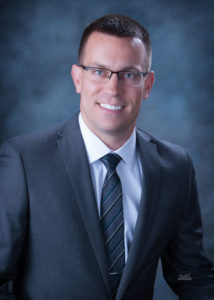Excellent oral care is one of the most important things you can do for your overall health. We want your healthy, beautiful smile to last you a life time, and that requires your dedication for at home care!
Tooth Brushing:
You should brush your teeth at least two times a day with an ADA approved soft bristle brush and toothpaste. The most important times to brush are before going to bed and upon waking up in the morning. Replace your toothbrush every 2 to 3 months. If you have questions about the quality of your toothbrush or how to properly brush your teeth, please talk with your dentist or dental hygienist about finding the right one for you at your next visit.
To improve your brushing technique immediately follow these simple tips until you can see your dentist.
- Brush at a 45 degree angle to the gums, gently, using a small, circular motion, ensuring that you always feel the bristles on the gums.
- Brush the outer, inner, and biting surfaces of each tooth.
- Use the tip of the brush head to clean the tongue side of your front teeth.
- Brush your tongue to remove bacteria and freshen your breath.
Electric toothbrushes are also highly recommended. They are easy to use and can remove plaque efficiently. Simply place the bristles of the electric brush on your gums and teeth, turn on, and allow the brush to do its job. Slowly move the brush over each surface of every tooth. All of our offices have electric toothbrushes and other dental care aids available, ask your office if you are interested in learning more about these items.
Flossing:
Flossing is the process of using a thread-like material to clean between the contact areas of teeth. You should floss daily because it is the best way to clean between the teeth and under the gumline. Flossing not only helps clean these spaces, it disrupts plaque colonies from building up, preventing damage to the gums, teeth, and bone.
To improve your flossing technique immediately follow these simple tips until you can see your dentist.
- Take 12-16 inches (30-40cm) of dental floss and wrap it around your middle fingers, leaving about 2 inches (5cm) of floss between your hands.
- Using your thumbs and forefingers to guide the floss, gently insert the floss between teeth using a sawing motion.
- Curve the floss into a “C” shape around each tooth and under the gumline. Gently move the floss up and down, cleaning the side of each tooth.
- Floss holders are recommended if you have difficulty using conventional floss. All of our offices have floss holders and other dental aids available, ask your office if you are interested in learning more about these items.
Rinsing:
Contrary to popular belief it is NOT necessary to rinse your mouth after you brush. In fact, if you don’t rinse you will continue to get the benefit of your fluoridated toothpaste for even longer. If you are using an over-the-counter mouthwash for rinsing, it is a good idea to consult with your dentist or dental hygienist on its appropriateness for you. And finally, if you are unable to brush after meals it’s best to rinse your mouth with water to help reduce plaque buildup and return your mouth to a neutral pH.
New Patients Welcome!
Visit Our Randolph Dental Office
Dentist Randolph

Randolph Location
105 Broadway,
Randolph, NE 68771
(402) 337-0089

Our Dental News
Dentist Randolph
The Hidden Risks of Sports and Energy Drinks | Dentist in Randolph
Sports and energy drinks are often touted as essential for maintaining energy levels during physical activities. However, the truth is, these seemingly harmless beverages can wreak havoc on your dental health. As your trusted Dentist in Randolph, Family 1st Dental […]
Learn MoreChipped Tooth Woes? Here’s Your Solution | Dentist in Randolph
You’re savoring your favorite hard candy when suddenly, you crunch down on an unexpected hard fragment. Panic sets in as you discover it’s a piece of your tooth. Enamel, tough as it is, has its breaking point. Whether it’s crunching […]
Learn MoreSafeguard Your Smile: Identifying the Symptoms of Gum Disease | Dentist Randolph
Gum disease, also known as periodontal disease, is a significant oral health issue impacting the tissues supporting and surrounding the teeth. It’s initiated by the buildup of bacteria and plaque on the gums and teeth, leading to inflammation, bleeding, and […]
Learn More


